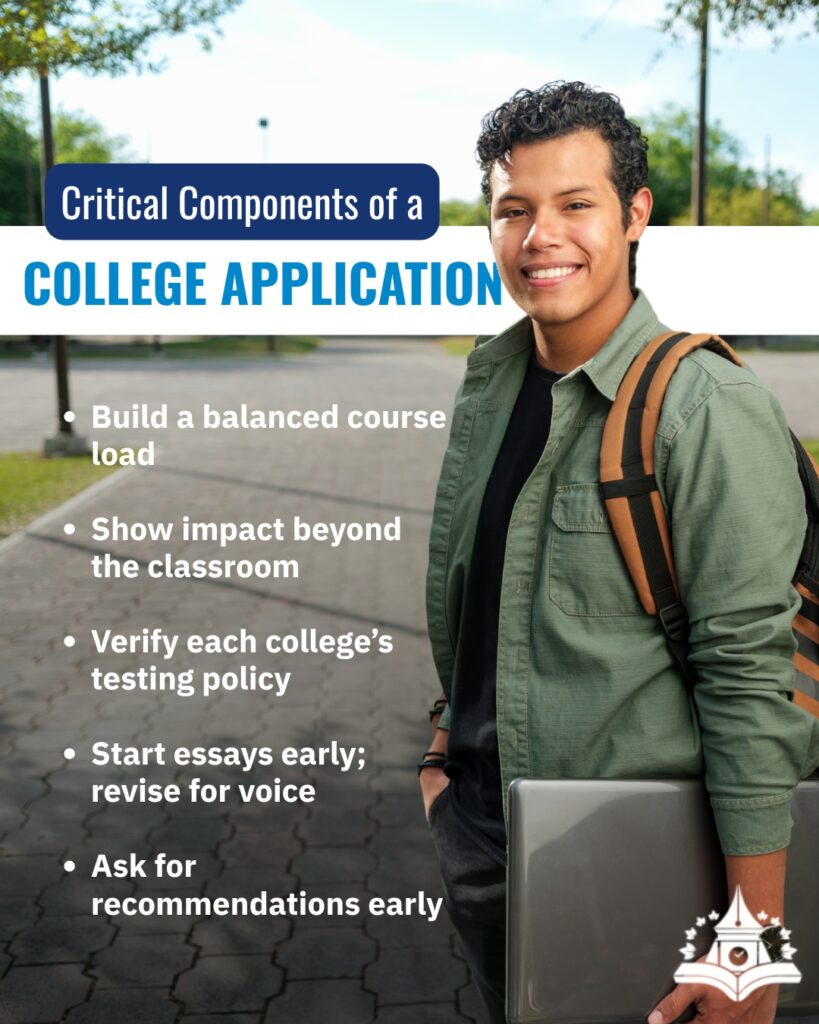According to NCES (IPEDS), about 16.2 million undergraduates were enrolled at Title IV degree-granting U.S. institutions in fall 2023 (provisional), 19.4 million students total. (Source)
For rising seniors who aspire to become college students, the journey–the process of applying to colleges– is about to begin. So, whether you’re a first or fourth generation college-bound student, the process is pretty daunting. Moreover, the degree of difficulty and complexity increases as you aim for top colleges and universities. So, what are the basics you really need to know?

You need to know that there are multiple ways to apply to colleges/universities:
- Common Application – where you can apply to over 1,000 colleges and universities https://www.commonapp.org
- Coalition Application – with more than 150 colleges committed to ‘Access, Affordability and Success’ https://www.coalitionforcollegeaccess.org/
- Various state institutions will have their own application. Below are a few popular ones.
- University of California System – https://admission.universityofcalifornia.edu/apply-now.html
- California State University System – https://www.calstate.edu/apply/
- Wisconsin – https://apply.wisconsin.edu (The University of Wisconsin – Madison offers both the Common Application and University of Wisconsin Application – there is no preference between applications)
- Texas – https://www.applytexas.org/ (Note: UT Austin encourages summer/fall applicants to use the Common App; spring applicants apply via ApplyTexas.)
When applying to top 4-year colleges and universities, the components of the application include the following:
- High School Transcript
- Test scores (SAT/ACT as required by each college); AP/IB scores are optional for most apps and typically sent after you enroll.
- Extracurricular Involvement/Activities
- Teacher Recommendations
- Counselor Recommendations
- College Essay

Your achievement in high school, as reflected on your transcript, will be the most revealing of your academic potential, as most colleges and universities are looking to admit academically capable students. In the transcript, admission officers are looking for demonstrated achievement in all subject matters from 9th grade through 12th grade. Seeing consistent performance of A’s is as insightful as seeing grade improvement that trends upward. Additionally, they’re looking to see the level of rigor you’re able to handle within the context of your school. Meaning if your school offers 15+ APs and you’ve only taken 3, a reviewer might conclude that you’re not taking the most rigorous course load available. On the flipside, if you’ve exhausted the offerings of your school and you’ve challenged yourself by taking classes at a nearby college/university, it will say a lot about your academic and intellectual motivation. Strong scores can contextualize or help offset weaker grades at some schools, but GPA and course rigor usually carry more weight.
Take Away: Stay strong all year. Some colleges see first-quarter grades in early rounds, and mid-year/final grades are reviewed for regular and admitted students. Large drops can lead to admission being reconsidered or rescinded.
Originally published in September 2017. Reviewed and updated by one of our Admissions consultants before being republished in August 2025.

Former Admissions Reader at The University of Michigan
3 years in University of Michigan Admissions
3,500+ Applications Read and Evaluated
Ever since graduating with her bachelor’s degree, Shayla Lebeck knew her passion lied within supporting students. Years later, Shayla has a graduate degree in Higher Education/Student Affairs with a concentration in academic advising.



